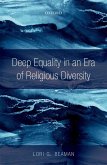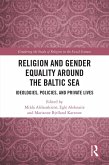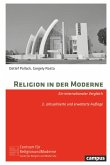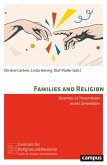While religious conflict receives plenty of attention, the everyday negotiation of religious diversity does not. Questions of how to accommodate religious minorities and of the limits of tolerance resonate in a variety of contexts and have become central preoccupations for many Western democracies. What might we see if we turned our attention to the positive narratives and success stories of the everyday working out of religious difference? Rather than 'tolerance' and 'accommodation', and through the stories of ordinary people, this book traces deep equality, which is found in the respect, humour, and friendship of seemingly mundane interactions. Deep Equality in an Era of Religious Diversity shows that the telling of such stories can create an alternative narrative to that of diversity as a problem to be solved. It explores the non-event, or micro-processes of interaction that constitute the foundation for deep equality and the conditions under which deep equality emerges, exists, and sometimes flourishes. Through a systematic search for and examination of such narratives, Lori G. Beaman demonstrates the possibility of uncovering, revealing, and recovering deep equality--a recovery that is vital to living in an increasingly diverse society. In achieving deep equality, identities are fluid, shifting in importance and structure as social interaction unfolds. Rigid identity imaginings, especially religious identities, block our vision to the complexities of social life and press us into corners that trap us in identities that we often ourselves do not recognize, want, or know how to escape. Although the focus of this study is deep equality and its existence and persistence in relation to religious difference, deep equality is located beyond the realm of religion. Beaman draws from the work of those whose primary focus is not in fact religion, and who are doing their own 'deep equality' work in other domains, illustrating especially why equality matters. By retelling and exploring stories of negotiation it is possible to reshape our social imaginary to better facilitate what works, which varies from place to place and time to time.
Dieser Download kann aus rechtlichen Gründen nur mit Rechnungsadresse in A, B, BG, CY, CZ, D, DK, EW, E, FIN, F, GR, HR, H, IRL, I, LT, L, LR, M, NL, PL, P, R, S, SLO, SK ausgeliefert werden.









